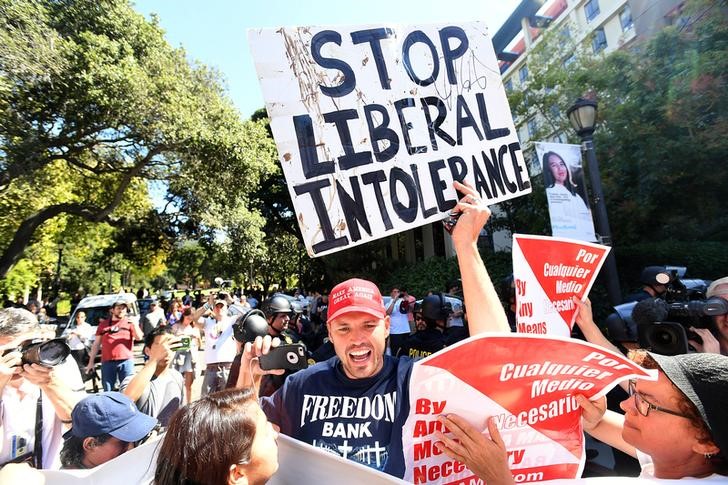The transition to a much lower carbon energy system will (eventually) require congressional legislation. That implies a significant change in the positions of existing members of Congress and/or change in the composition of Congress. Both types of change depend, in turn, upon bottom-up (voter) pressure.
The (Bill) Clinton campaign in the 1990s focused its attention on economic issues as the way to motivate voters with the mantra, “It’s the economy, stupid.” But today other factors loom larger in voting decisions.
In Climate of Contempt I quote the late cultural anthropolgist Mary Douglas on the importance of peer pressure to political beliefs and behavior: “Culture puts pressure on individuals. They don’t make major decisions without consulting friends.”[1] Too much of today’s popular discussion of climate and energy politics ignores the importance of social factors in driving voting decisions. Elections are no longer driven mostly by voters’ personal economic circumstances, if indeed they ever were. Rather, ideology and identity loom larger to voters in the internet age.
Not long ago the New York Times reported on the work of political scientists Chryl Laird and Ismail White illustrating the power of Douglas’ observation in the voting context. They found that black voters are about 10 percent more likely to report voting for Democrats when asked in person by a black pollster than when asked anonymously. Laird’s and White’s work supports the idea that social pressure is an important driver of political behavior — not only who we vote for but also what we choose to value or believe.
For energy transition advocates this truism has important implications. It suggests that merely raising the general salience of climate and energy policy to voters, or tying the energy transition to their economic self-interest, may not be sufficient to generate pressure on elected politicians. As ideological and social media fan the flames of tribal partisanship, cultural issues become more salient than those other factors.
For the climate coalition, this means that some of the emotionally satisfying forms of political debate may not only be ineffective, they may also be counterproductive. Because the news feeds of many GOP voters cultivate cultural resentment of left-leaning elites 24/7, those voters are often unpersuaded when comedians, talk show hosts, political podcasts point out their factual errors or ridicule their mistakes. Indeed, that ridicule may make Donald Trump’s promise to be their “justice and retribution” resonate more strongly.
Rather, changing votes requires engaging the social drivers of voter choice. Chapter 6 of my book surveys research that addresses that task, most of which reflects well-established (but often ignored) truths about persuasion more generally. We are more likely to be persuaded by people we trust. That means that friends, family and co-workers are more likely than strangers to consider seriously what we say. It takes time to build trust with strangers, though it can be done. Face to face engagement is more likely to persuade than remote discussion. And so on.
I sum, if your political communication is cathartic for you, it is probably not doing much good. Repeated, difficult conversations with people we know and with whom disagree will be much more likely to move the politics of the energy transition in a positive direction. This is an inconvenient truth in these divided, bitterly partisan times. — David Spence
—–
[1] Mary Douglas, “Being Fair to Hierarchists,” University of Pennsylvania Law Review 151: 1349-1370 (2003),

